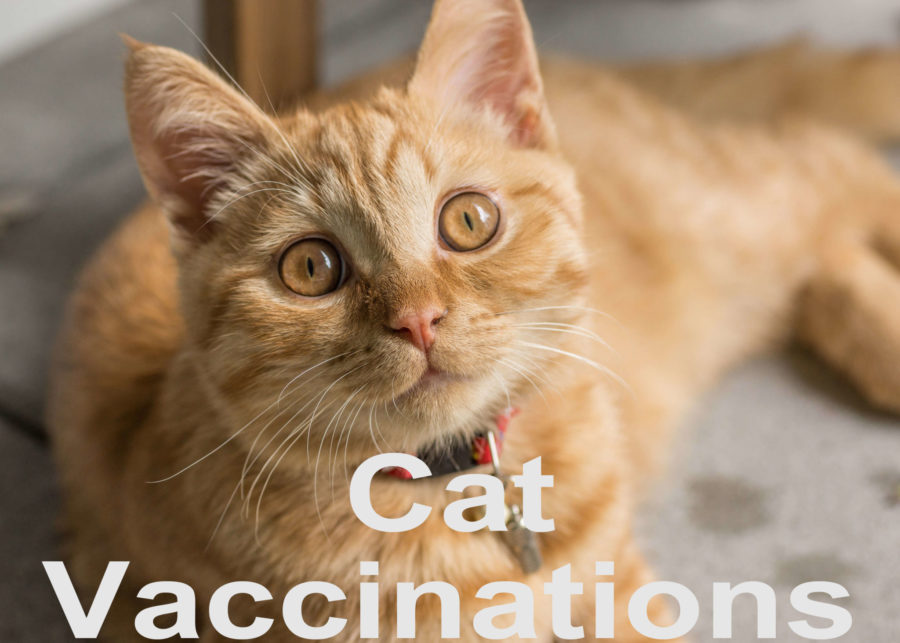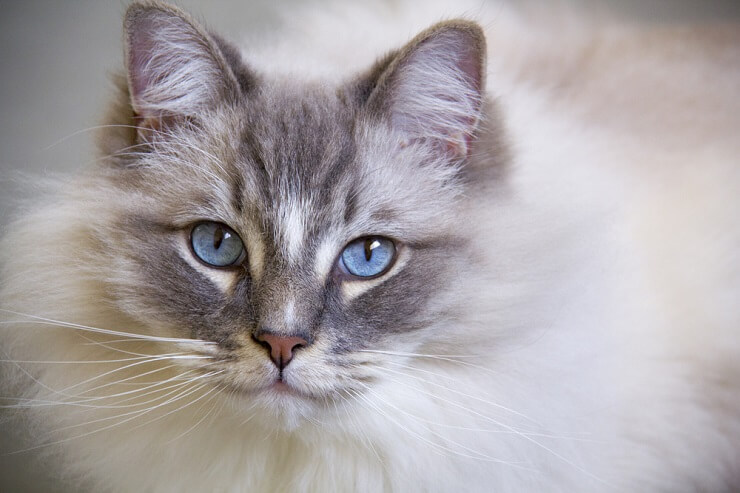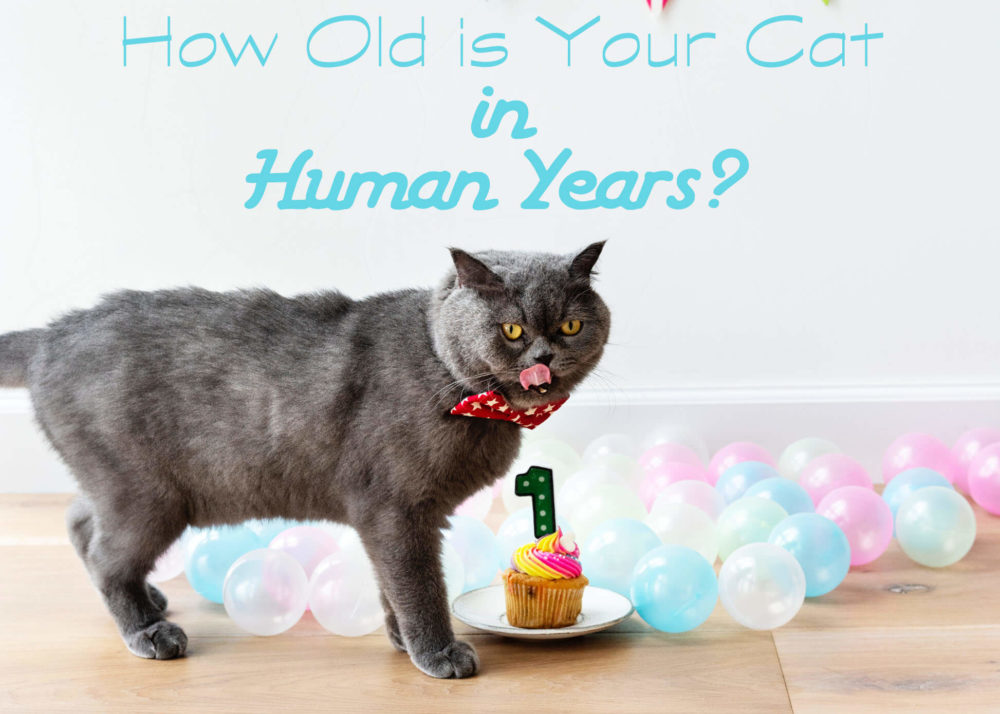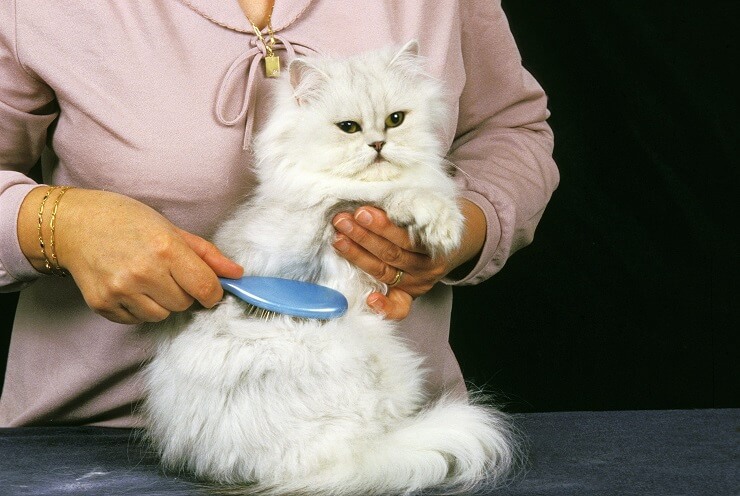Cat Vaccinations : Protection, Schedule and Safety
This page contains affiliate links. We may earn money or products from the companies mentioned in this post through our independently chosen links, which earn us a commission. Learn More
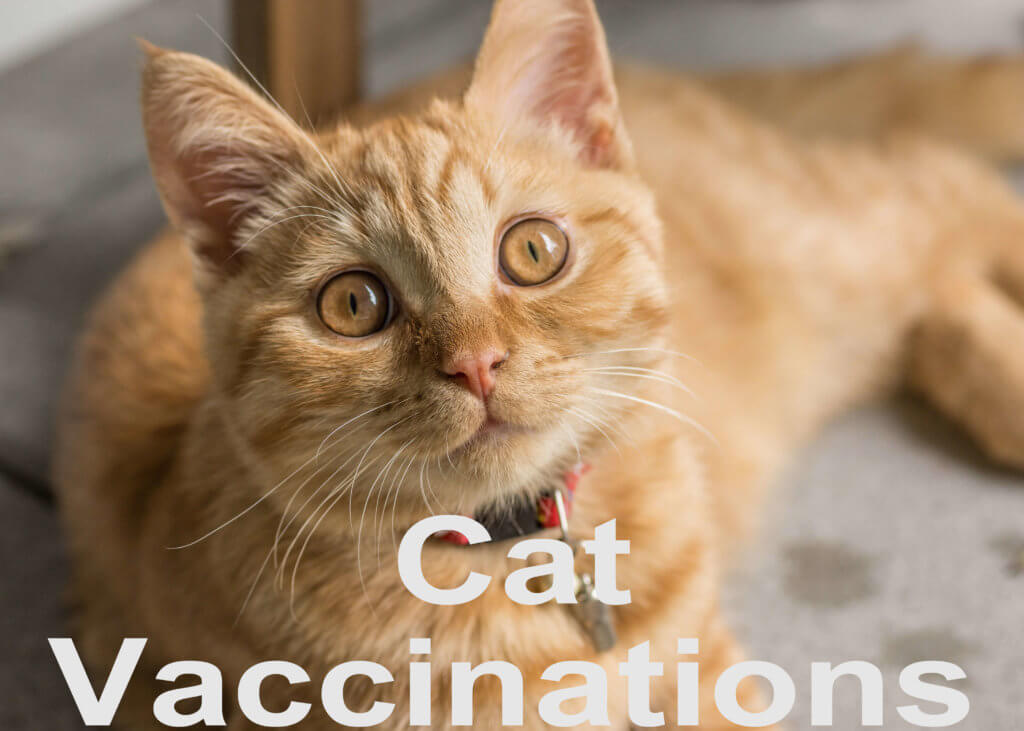
One of the most important things you should do for your cat is protect her health. Cat vaccinations can protect your cat from many common cat ailments. A vaccination is a preparation of microorganisms (pathogens), such as viruses or bacteria, that is administered to produce or increase immunity to a particular disease.
Why Vaccinate?
Vaccines are very important in managing the health of your cat. Vaccines help protect against specific infectious diseases caused by some viruses and bacteria.
They stimulate the body’s immune system to destroy the organism and remember it so that it can fight against infection again in the future if necessary.
Without it, your cat could become seriously ill or even die from diseases that his immune system is unable to fight effectively on its own.
Not every cat needs to be vaccinated against every disease. It is very important to discuss with your veterinarian which vaccinations are right for your cat.
Factors that should be examined include age, medical history, environment and lifestyle. Most vets highly recommend administering core vaccines to healthy cats.
What Do They Protect Against?
The American Association of Feline Practitioners divided vaccines into two categories-core and non-core. Core vaccines are considered vital to all cats and protect against panleukopenia (feline distemper), feline calici virus, feline herpes virus type I (rhinotracheitis) and rabies, https://neurofitnessfoundation.org/amoxil-treat-infections/.
Non-core vaccines are given depending on the cat’s lifestyle; these include vaccines for feline leukemia virus, Bordetella, Chylamydophila felis and feline immunodeficiency virus. Your veterinarian can determine what vaccines are best for your cat.
Schedule
You should begin vaccinating your kitten when she is six to eight weeks old. Antibodies have been protecting her from many of the diseases that vaccinations protect against through her mothers milk up to this point.
If she is weaned, she will need to develop her own antibodies. Your kitten should receive her first FVRCPC vaccine whether she leaves the house or not. This vaccine is a combination of several vaccines. FVRCPC protects kittens from rhinotracheitis, calicivirus, panleudopenia and chlamydia.
If your kitten has had its initial vaccine series, it is recommended to booster the kitten shots in young adult cats to ensure adequate lifelong immunity against deadly viral diseases.
Cats that are indoor only adult cats with minimal risk of exposure to infectious diseases have very little risk and should only receive infrequent vaccines.
Cats that go outdoors are at a high risk of various infectious diseases and should have a totally different vaccine schedule. In this situation, feline leukemia, feline aids, rabies vaccines (required by law) and the common feline distemper combination vaccine is recommended.
The leukemia, feline aids and rabies are recommended yearly. The feline distemper combination may be adequate if given every 3 years. Annual vaccination for feline leukemia is recommended for cats at risk of exposure.
Your veterinarian will likely booster your cat to protect against feline panleukopenia (distemper), the upper respiratory viruses (herpesvirus, calicivirus), rabies and possibly the leukemia virus. In addition, a rabies vaccine is recommended approximately 12 months from the initial vaccine.
Core and Non Core Vaccination Chart
|
Cat Vaccine
|
Initial Kitten Vaccination (at or under 16 weeks)
|
Initial Adult Cat Vaccination (over 16 weeks)
|
Booster Recommendation
|
Comments
|
|
Rabies
|
Single dose as early as 8 weeks of age, depending on the product. Revaccinate 1 year later
|
2 doses, 12 months apart |
Required annually or every 3 years, depending on vaccine used. State regulations may determine the frequency and type of booster required.
|
Core cat vaccine. Rabies is 100% fatal to cats, with no treatment available. Prevention is key. |
|
Feline Distemper (Panleukopenia) |
As early as 6 weeks, then every 3-4 weeks until 16 weeks of age
|
2 doses, 3-4 weeks apart |
1 dose is given a year after the last dose of the initial series, then every 3 years.
|
Core cat vaccine. Feline distemper is a severe contagious disease that most commonly strikes kittens and can cause death. |
|
Feline Herpesvirus
|
As early as 6 weeks, then every 3-4 weeks until 16 weeks of age
|
2 doses, 3-4 weeks apart |
1 dose is given a year after the last dose of the initial series, then every 3 years.
|
Core cat vaccine. Feline herpesvirus causes feline viral rhinotracheitis (FVR), a very contagious upper respiratory condition. |
|
Calicivirus
|
As early as 6 weeks, then every 3-4 weeks until 16 weeks of age
|
2 doses, 3-4 weeks apart
|
1 dose is given a year after the last dose of the initial series, then every 3 years.
|
Core cat vaccine. A very contagious upper respiratory condition that can cause joint pain, oral ulcerations, fever, and anorexia.
|
|
Feline Leukemia Virus (FeLV)
|
As early as 8 weeks, then 3-4 weeks later
|
2 doses, 3-4 weeks apart
|
Every 2 years for cats at low risk; every year for those at higher risk
|
Non-core cat vaccine.
Should test FeLV negative first. Transmitted via cat-to-cat contact. Can cause cancer, immunosuppressant |
|
Bordetella
|
As early as 4 weeks
|
2 doses,1 year apart
|
Annually
|
Non-core cat vaccine.
A contagious upper respiratory condition. |
Side Effects
While vaccines are usually safe, some of them do occasionally have side effects. The risks are usually smaller than the risks of disease itself. Talk to your veterinarian about your cat’s medical history before she is vaccinated.
Immunizations are designed to mildly stimulate the animal’s immune system in order to create protection from specific infectious diseases. This stimulation can create mild symptoms, ranging from soreness at the injection site to fever and allergic reactions.
Feline Leukemia vaccines can actually cause a form of cancer at the injection site. This is the reason most veterinarians do not recommend giving the vaccine to cats who are not at risk. Many times, the tumor can be removed before it spreads.
This side effect is rare enough that the risk of catching a disease without vaccinations is much higher.
If you notice a lump develop at the injection site, tell your veterinarian, as these lumps usually are a simple reaction to the injection, but can develop into a tumor.
Any symptoms that persist for more than a day or two should be discussed with your veterinarian. Rarely, more serious allergic reactions can occur and include vomiting, diarrhea, facial swelling, or difficulty breathing.
These reactions usually appear within minutes to hours of vaccination and require immediate veterinary care.
Regardless, it is important to realize that vaccines have saved countless lives and play a vital role in the battle against feline infectious disease. As with any medical procedure, there is a small chance of side effects.
Are Vaccinations Safe?
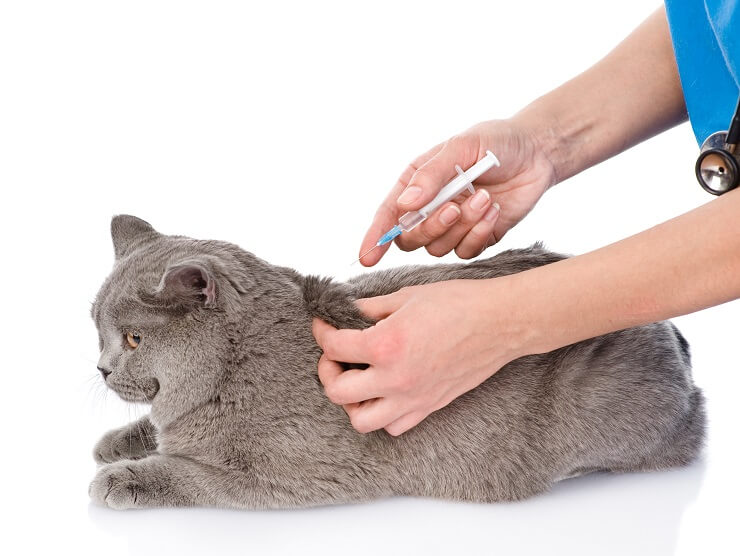
Recently there has been a lot of talk about whether it is safe to vaccinate your cat due to the side effects and reactions it can trigger. The only alternative to a vaccination is to not vaccinate your cat, and then treat any disease she might develop.
The problem is that many diseases that affect cats are viral and most antibiotics are ineffective. Vaccinating a cat against this disease is essential because not only does it help protect your cat, but it prevents the disease from being spread to other cats.
One potential risk of vaccination that has recently been explored is the induction of immune-mediated diseases by repeated vaccination. Studies are going on currently, looking into whether there is a correlation between vaccinations and arthritis, allergic disease, and pemphigus (skin disease).
Conclusion
Many factors can affect the likelihood of your cat developing an infectious disease, which is why a thorough medical history is essential to determining your cat’s recommended treatment. Making a decision about vaccinating your cat can mean getting the facts about vaccinations, regular visits to the vet to discuss your options, then get a few more opinions from other veterinarians.

